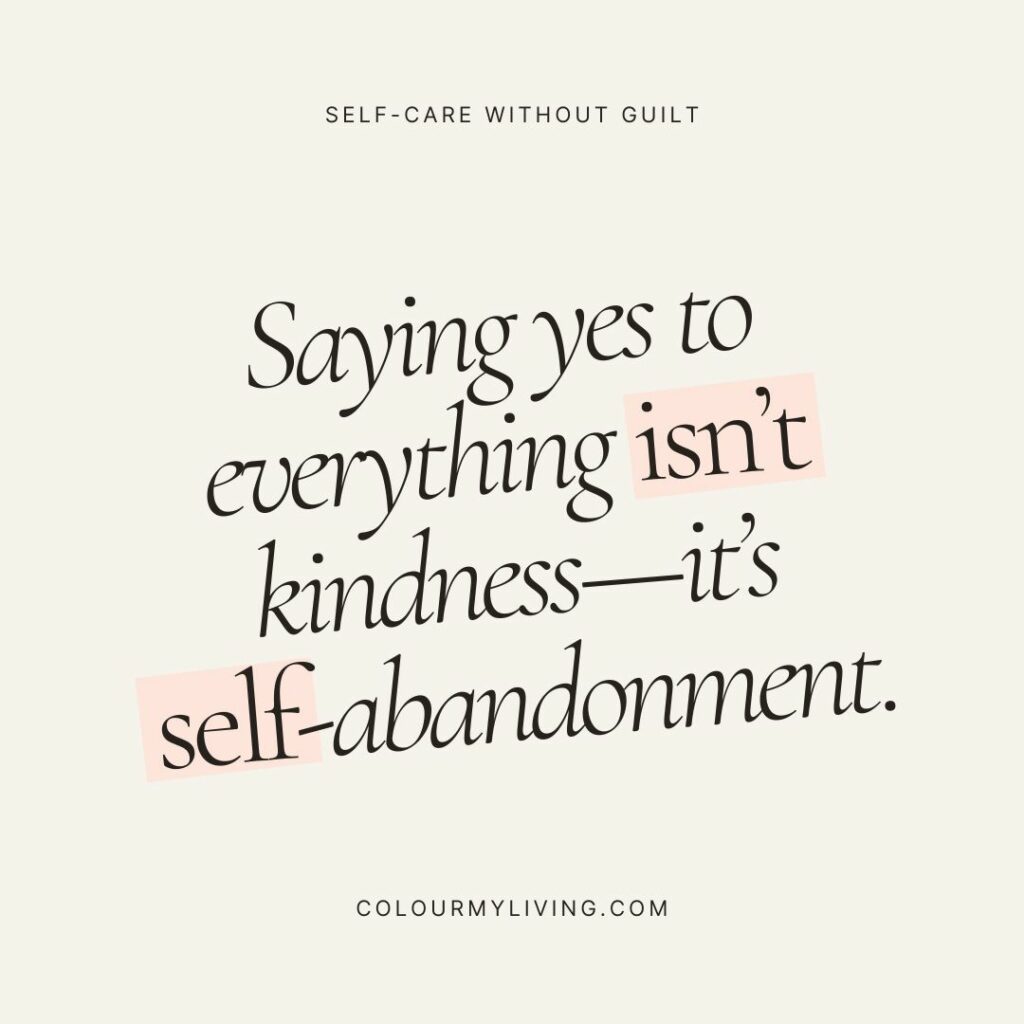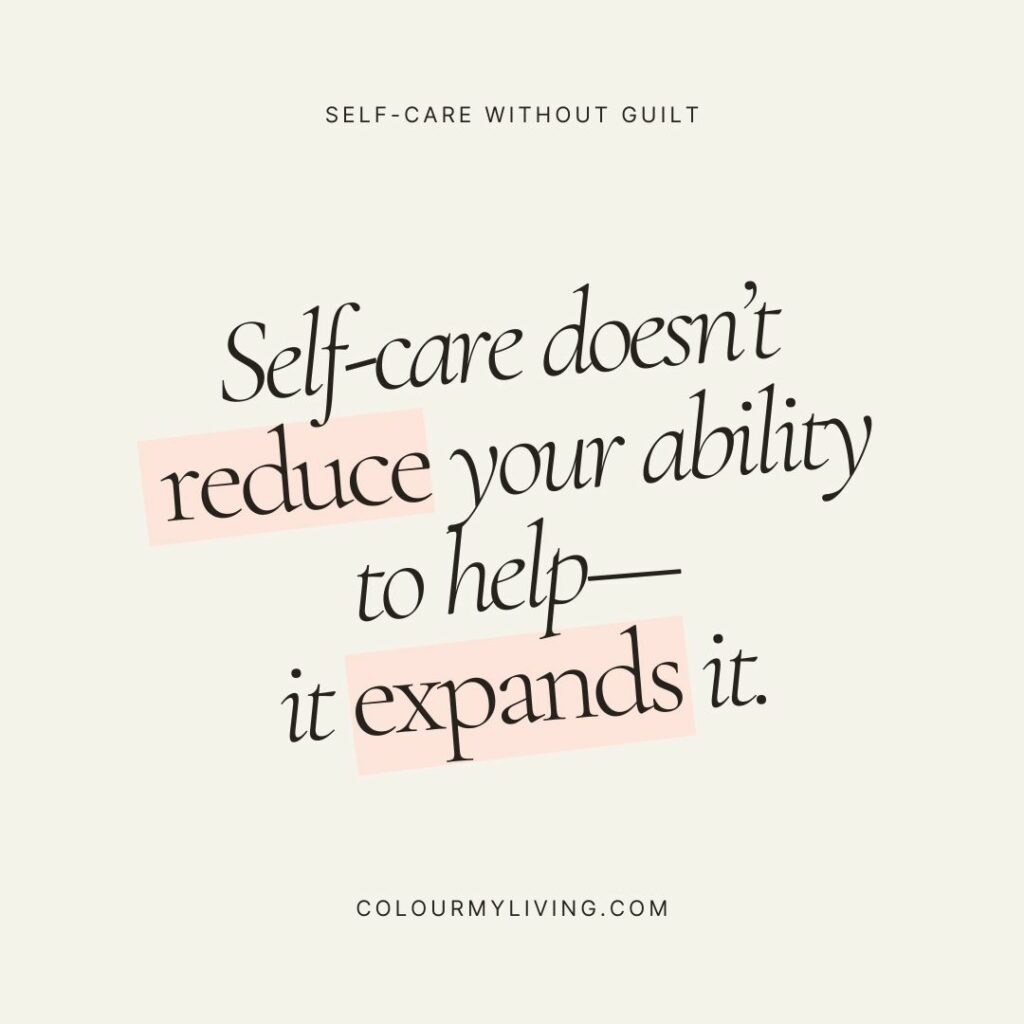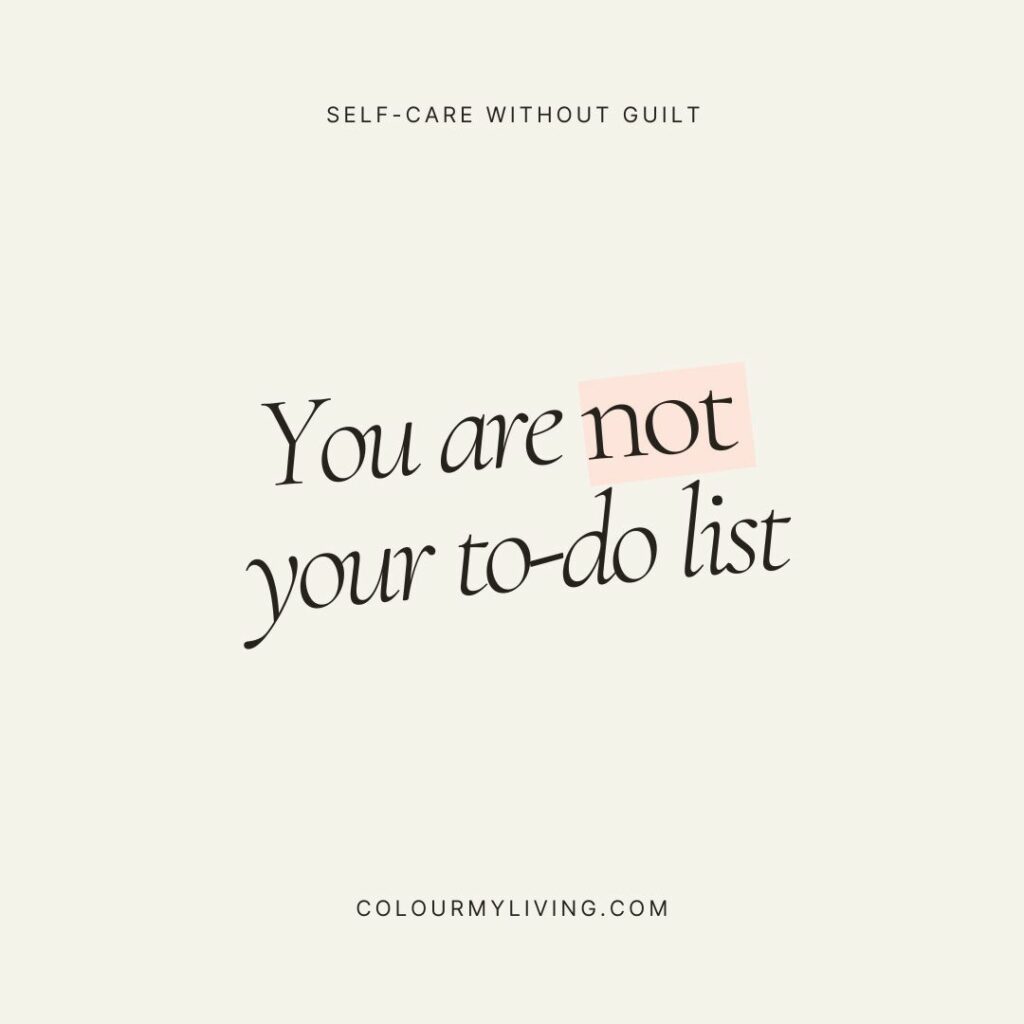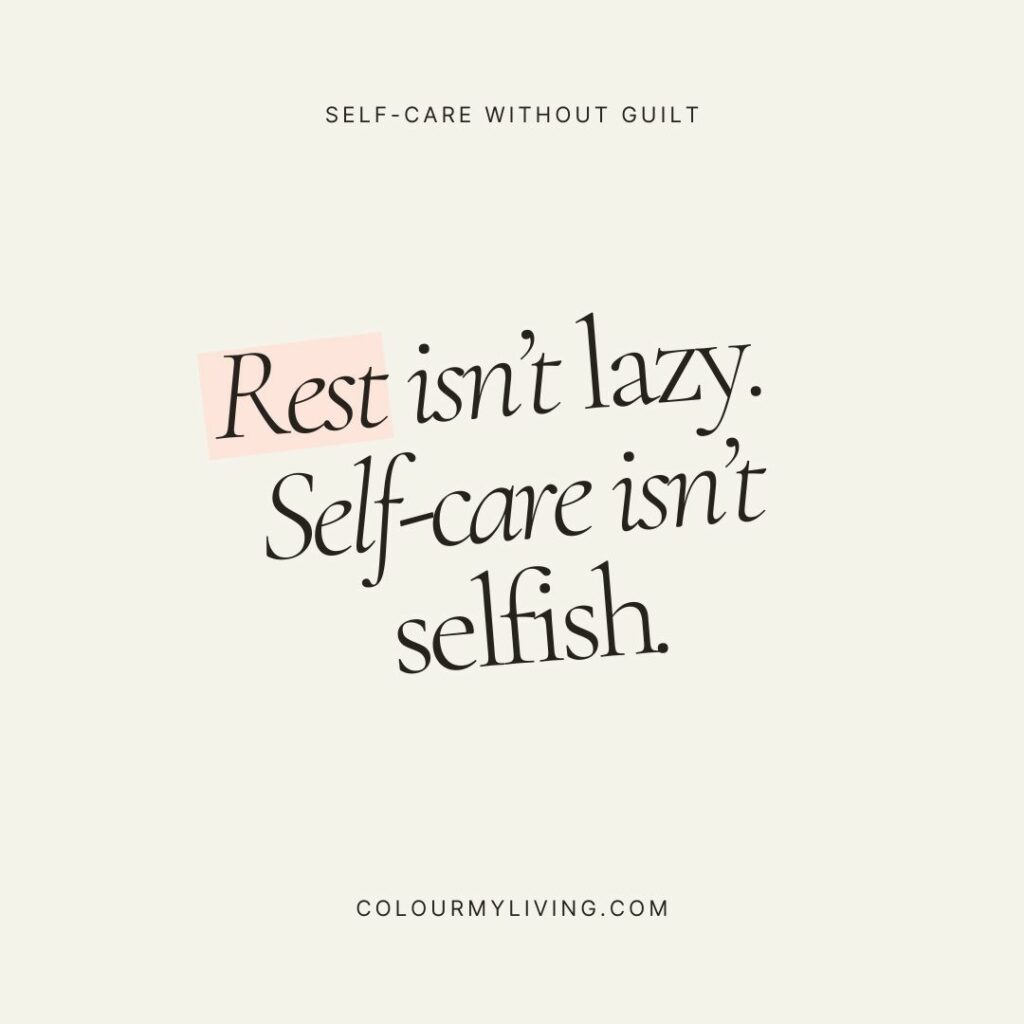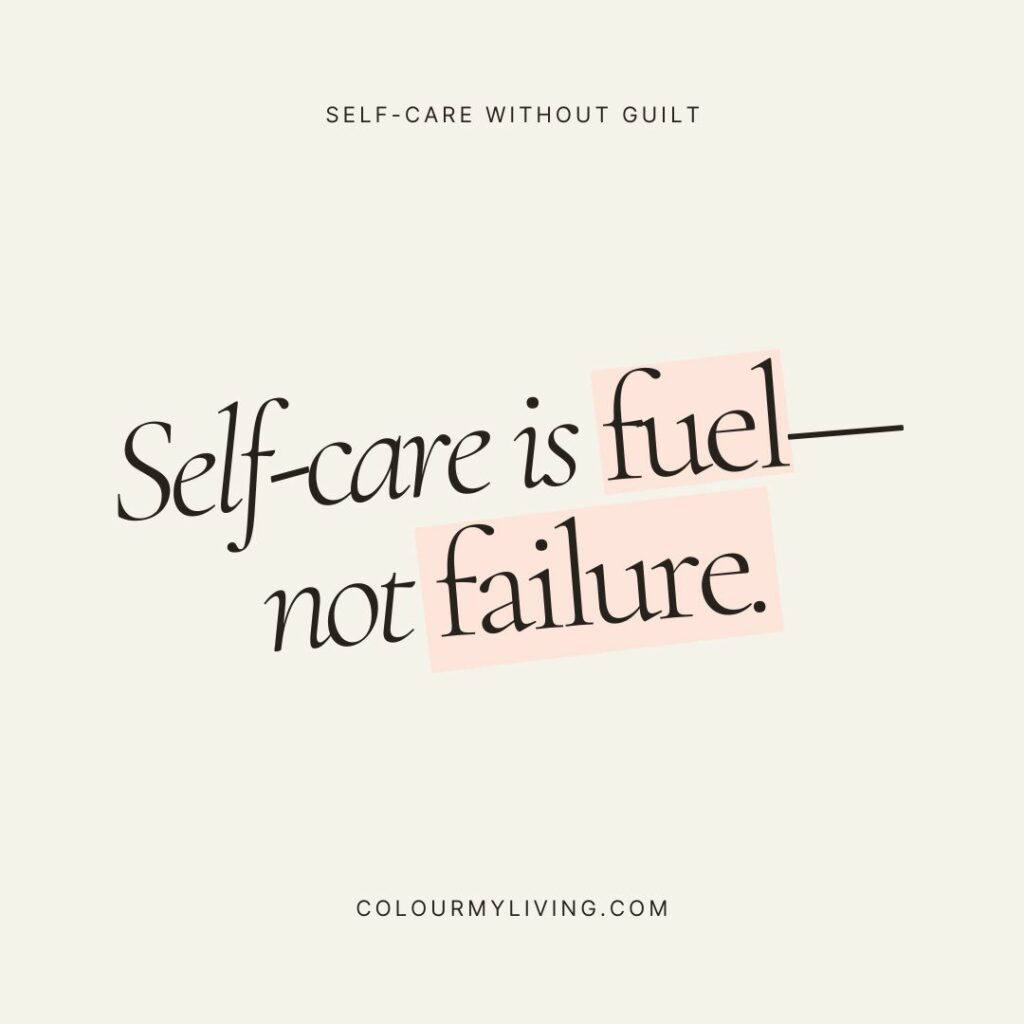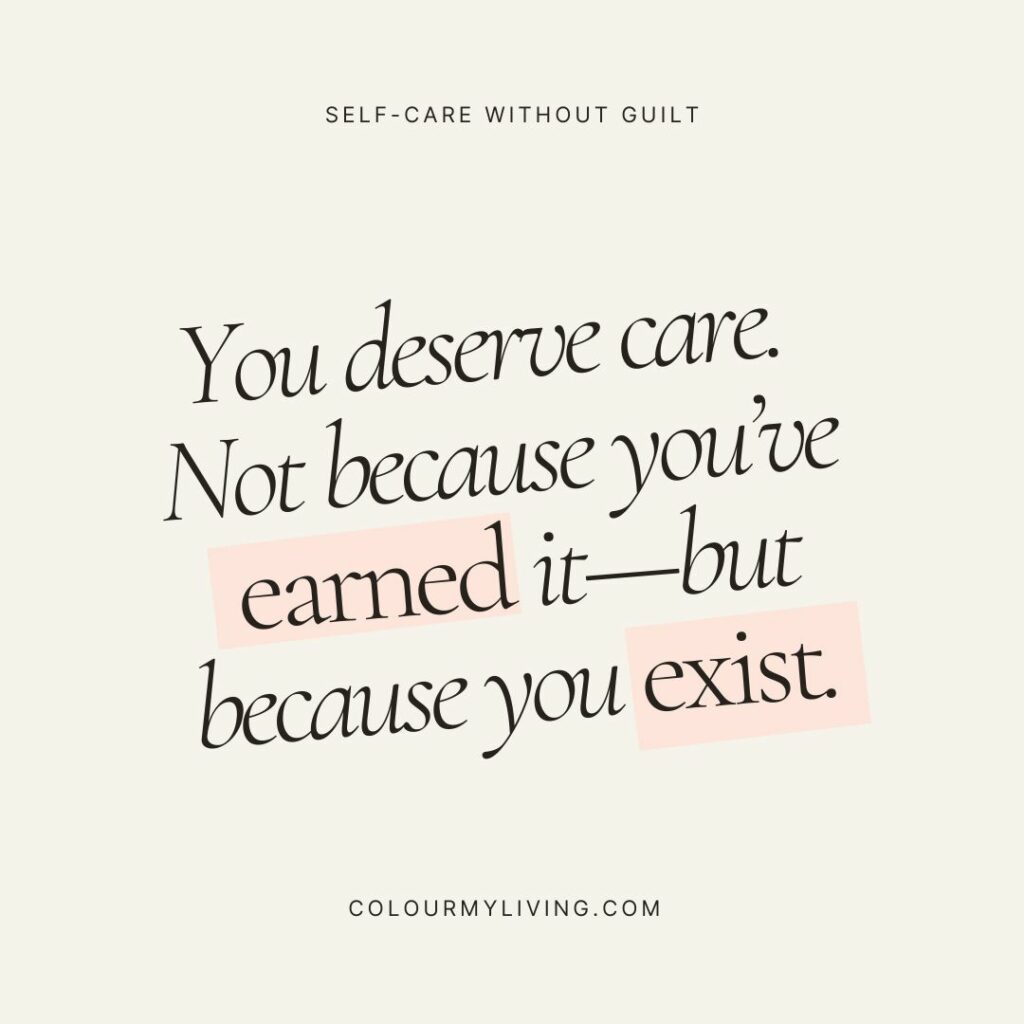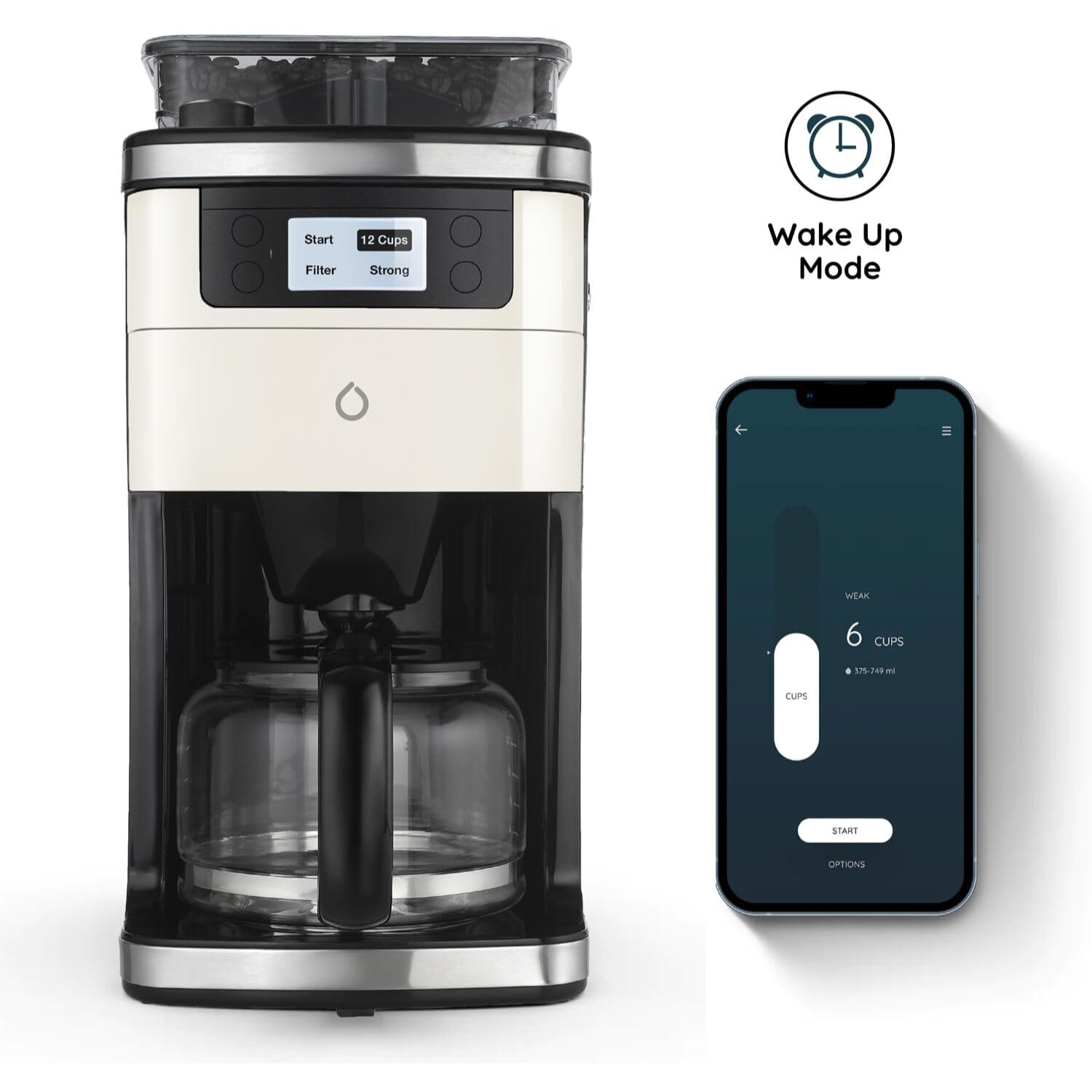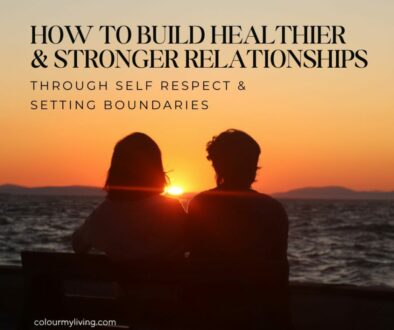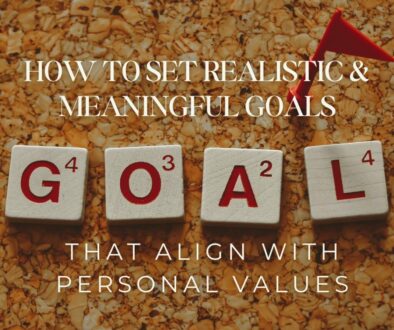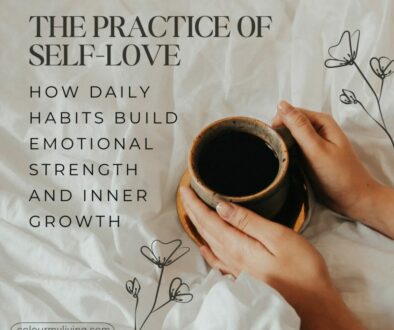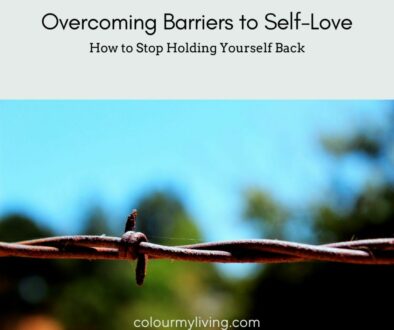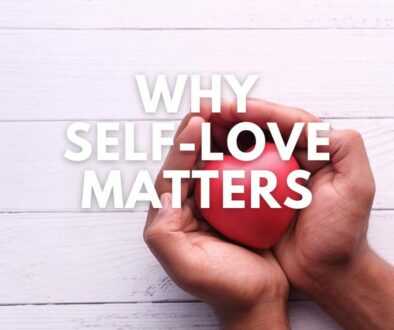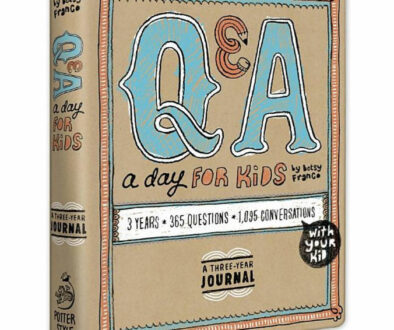Let Go of Guilt: How to Embrace Self-Care without Apology
Self-care is often framed as an essential practice for well-being, yet many people struggle to embrace it fully without guilt. The idea of taking time for personal needs often brings up feelings of selfishness, shame, or unworthiness—especially for those who have been conditioned to prioritise others before themselves.
Have you ever felt guilty for needing a break?
Maybe you cancelled plans to rest, only to spend the evening worrying you let someone down. That’s self-care guilt—and it’s more common than you think.This guilt can make it difficult to set boundaries, say no, or take breaks, even when rest is needed.
However, self-care is not a luxury or an indulgence. It is a necessity. Just as physical health depends on proper nourishment and rest, emotional well-being requires attention and care. Without it, exhaustion, resentment, and burnout becomes inevitable. Letting go of guilt around self-care is essential for maintaining balance, preserving energy, and building a life that encompasses and embraces personal needs and values.
This article explores why self-care guilt exists, how to recognize and reframe it, and practical ways to embrace self-care without apology.

Why Self-Care Guilt Exists
Self-care may be widely accepted as essential, but actually practising it—without feeling guilty—is another story. Many people feel a twinge of discomfort or shame when they try to prioritise their own needs, even when they are emotionally drained or physically exhausted. That guilt is not random or irrational; it’s the by-product of deeply rooted cultural narratives, social programming, and personal experiences that have taught us that putting ourselves first is selfish, wrong, or even dangerous.
By understanding the origins of self-care guilt, we gain power over it. When we name the source of our guilt, we can begin to question it—and eventually replace it with healthier, more compassionate beliefs.
Some of the most common reasons people feel guilty about self-care are as follows:
1. Cultural and Social Conditioning
From an early age, many of us are raised in environments that equate self-worth with how much we do for others. We’re taught that to be a “good” person means to put others first, to sacrifice our own needs for the greater good, and to give until there’s nothing left. This messaging may come from family, religion, media, or community influences. Over time, it creates an unconscious script: “My value is in what I do for others, not in who I am or how I feel.”
Phrases like:
“Don’t be selfish.”
“Put others before yourself.”
“It’s not about you.”
These may seem well-intentioned on the surface, but they reinforce the idea that self-care is indulgent or shameful. As a result, even simple acts like taking a break, saying no, or investing in our own needs can feel like moral failures.
In reality, constantly giving without tending to yourself leads to physical and emotional burnout. You cannot pour from an empty cup—and yet, many of us are encouraged to try. Just like a phone cannot function without being recharged, people require time to reset, restore, and care for themselves in order to continue supporting others meaningfully.
Learning to see self-care not as rebellion against duty but as fuel for sustainable giving is a vital reframe.
2. Fear of Disappointing Others
Another powerful driver of guilt is the fear of letting people down. This is especially true for caregivers, empaths, parents, and those with people-pleasing tendencies. If you’ve grown up with the idea that your role is to always be available, helpful, or agreeable, then asserting your needs can feel like a betrayal.
You might worry that:
- Others will think you’re lazy or unreliable.
- You’ll be perceived as ungrateful or distant.
- Saying no will damage your relationships.
This fear can lead to chronic over-committing, exhaustion, and emotional depletion. And unfortunately, the more you neglect your own needs, the more resentment quietly builds—creating tension in the very relationships you’re trying to preserve.
What’s important to understand is this: Caring for yourself is not the same as abandoning others. It’s about acknowledging your limits and giving from a place of fullness rather than depletion.
Setting boundaries isn’t selfish; it’s an act of relational maturity. When you honour your needs, you show up more authentically, consistently, and compassionately in your relationships. You teach others how to do the same.
3. Associating Self-Worth with Productivity
We live in a culture that idolises the grind. Productivity is praised, burnout is normalised, and exhaustion is often seen as a badge of honour. In this kind of environment, slowing down can feel countercultural—like you’re falling behind or wasting time.
Many people tie their self-worth to their output: how much they achieve, how hard they work, how constantly they produce results. If you’ve internalised this belief, rest and self-care can feel uncomfortable—maybe even terrifying.
You might find yourself thinking:
“I don’t deserve rest until I finish everything.”
“If I’m not busy, I’m being lazy.”
“Other people are working harder—who am I to take a break?”
But this hustle mindset is not sustainable. True creativity, resilience, and focus thrive not in a state of constant busyness—but in cycles of work and rest. Rest is what makes sustainable productivity possible.
Self-care isn’t a detour from progress—it’s what enables progress over the long term. By disconnecting your identity from your to-do list, you can begin to view self-care not as a reward you earn but as a right you already have.
Reframing Self-Care as Essential, Not Selfish
One of the most powerful ways to reduce self-care guilt is to challenge the inner beliefs and assumptions that created it in the first place. Guilt often thrives in silence—when we don’t question our inner narratives, we accept them as truth.
At the root of self-care guilt is a distorted equation: “If I take care of myself, I’m being selfish.”
But this is a false choice. There’s a vast difference between being selfish and being self-honouring. Self-care is not about prioritising your needs at the expense of others—it’s about recognising that your well-being matters too.
When you’re well—physically, mentally, emotionally—you show up stronger, more present, more generous. And that helps everyone.
Reframing your beliefs around self-care starts with recognising these distorted thoughts and replacing them with more balanced, compassionate truths. Here are three key reframes to help you begin:
1. Self-Care Enables You to Show Up Fully
We’ve all heard the metaphor: “You can’t pour from an empty cup.” And yet, so many of us try. We push through exhaustion, override burnout, and convince ourselves that caring for others means ignoring our own needs.
But here’s the reality: when you’re drained, your capacity to support others shrinks.
Your patience shortens. Your creativity dulls. Your empathy fades.
Think of yourself as a well. If the well runs dry, no one benefits. But when it’s full, it nourishes everyone around it—without depleting itself.
Self-care doesn’t reduce your ability to help others—it expands it. It keeps your emotional engine running and your internal resources replenished.
Old belief: “If I take time for myself, I’m neglecting others.”
Empowered reframe: “By taking care of myself, I’m better able to support the people I care about.”
2. Saying No is an Act of Self-Respect
Many people struggle with guilt when setting boundaries, fearing it will hurt someone’s feelings or damage a relationship. But saying yes to everything out of obligation isn’t generosity—it’s self-abandonment.
When we say yes to requests that stretch us too thin, we often do so out of fear: fear of being disliked, judged, or perceived as unkind. But over time, this leads to emotional depletion, hidden resentment, and even relationship breakdowns.
Healthy boundaries are not barriers—they are bridges to healthier relationships. They signal what you can offer without compromising your own well-being.
Saying no isn’t selfish. It’s clarity, maturity and self-respect.
Old belief: “If I say no, I’ll disappoint someone.”
Empowered reframe: “Saying no allows me to honour my limits and stay aligned with what truly matters.”
And here’s the bonus: When you model clear, kind boundaries, you empower others to do the same.
3. Rest is Not a Reward—It’s a Requirement
Many people grow up internalising the belief that rest must be earned. That unless you’ve worked hard enough, accomplished enough, or pushed yourself to the brink, you don’t deserve a break.
This “productivity guilt” is incredibly common—and incredibly harmful.
Rest is not a luxury. It’s not a sign of laziness or weakness. It’s a biological necessity and a cornerstone of mental health. Just as your heart needs to pause between beats, your mind and body need space to recover.
You wouldn’t expect a musician to play endlessly without stopping between songs, or a runner to sprint nonstop for hours. So why hold yourself to that impossible standard?
Regular, intentional rest doesn’t slow you down. It protects you from burnout and helps you sustain energy, focus, and joy in the long term.
Old belief: “I need to do more before I’ve earned a break.”
Empowered reframe: “Rest restores me so I can continue growing, contributing, and showing up fully.”
By practising these reframes daily, you can slowly unlearn the guilt that’s been ingrained over years or decades. You begin to see self-care for what it truly is—not a luxury, not an indulgence, but a foundational act of self-respect and inner alignment.
Practical Ways to Release Guilt and Embrace Self-Care
Changing long-held beliefs takes time, compassion, and consistent practice. Guilt is often hard-wired into our nervous systems and our daily habits, so unlearning it doesn’t happen overnight. The goal is not perfection—but progress. You don’t need to change everything at once. Instead, gently integrate small actions and mindset shifts that reinforce your worth and well-being.
Here are five supportive ways to begin embracing self-care without guilt—starting where you are, with what you have.
1. Start Small and Build Consistency
Many people think self-care has to be elaborate—a luxury retreat, an uninterrupted spa day, or a perfectly curated morning routine. That belief alone can prevent us from ever starting. But the most powerful self-care often happens in the everyday.
By allowing yourself even a few minutes of intentional care—whether that’s a quiet coffee in the morning, a tech-free lunch, or 10 deep breaths before a meeting—you send a powerful message to yourself: “I matter, even in the midst of my responsibilities.”
Self-care is not about how long it lasts—it’s about how present you are in it. These tiny, consistent moments of attention build a new foundation of trust within yourself. And over time, they become non-negotiable anchors of peace.
Try:
- Taking five minutes of uninterrupted quiet time.
- Setting aside a few minutes for deep breathing or stretching.
- Allowing time for a hobby or activity that brings joy.
- Saying no to a meeting you don’t need to attend
- Going to bed 30 minutes earlier
As these moments become part of daily life, self-care feels less like an indulgence and more like an essential practice.
2. Set Boundaries With Confidence
One of the biggest barriers to guilt-free self-care is the fear of disappointing others. Saying “no” feels risky. We worry that we’ll seem rude, uncaring, or selfish. But here’s the truth: boundaries are not rejections—they are expressions of respect, both for yourself and the people you engage with.
When you set a boundary, you’re being clear about what you need in order to remain healthy, present, and connected. You’re not building walls—you’re building structure. Without boundaries, burnout is inevitable. With them, your time and energy have space to breathe.
If you struggle with what to say, keep it simple. You don’t need to over-explain. Direct, honest communication is enough.
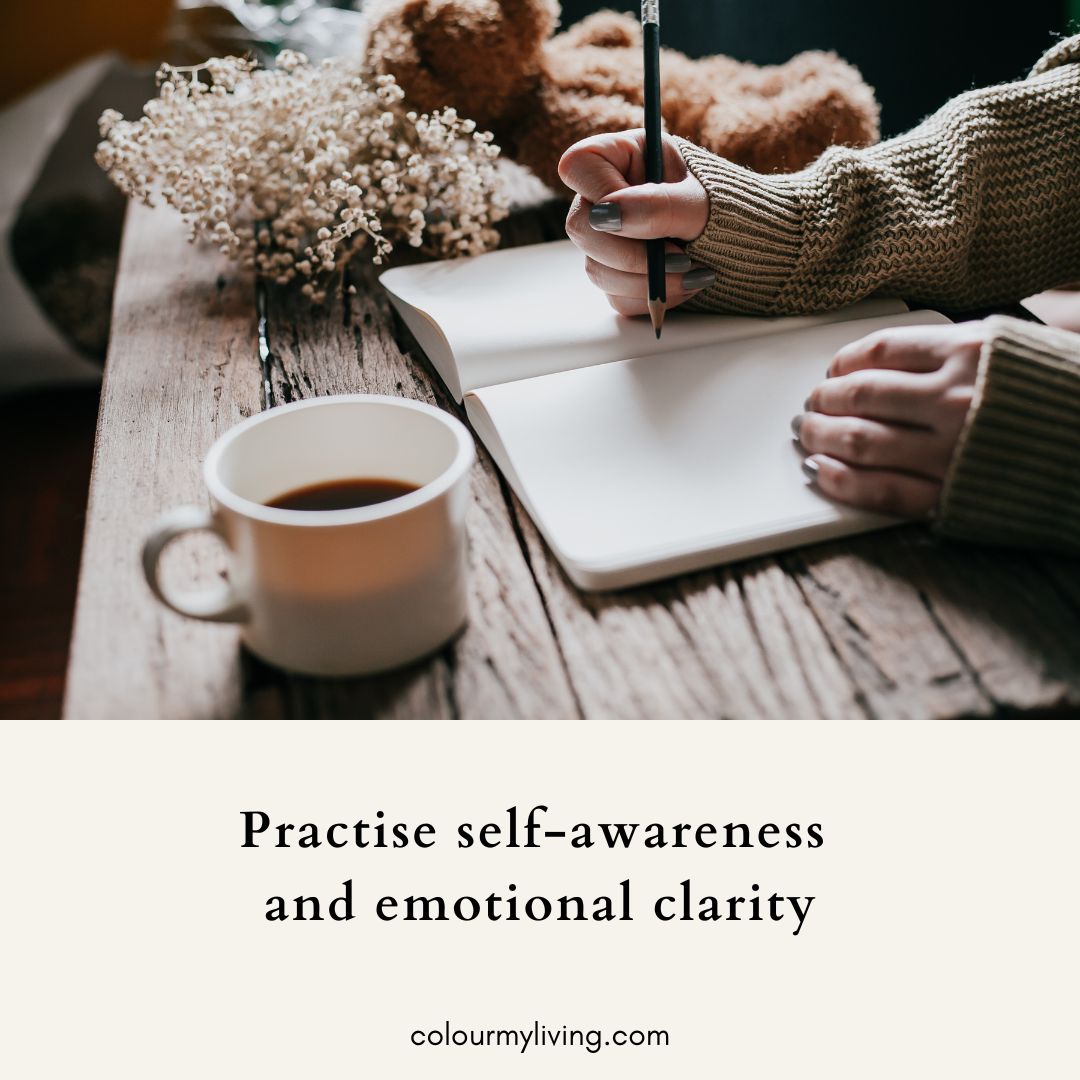
Try:
- “I’m not available tonight. I need a recharge evening.”
- “Thanks for thinking of me, but I’m overcommitted right now.”
- “I need to take some time for myself today.”
- “I won’t be able to commit to this right now.”
- “I appreciate the invite, but I need a quiet evening to recharge.”
And remember: you’re not responsible for how others receive your boundaries—you’re responsible for protecting your own well-being. The more boundaries are honoured, the easier they become to set.
Related: How to Set and Maintain Healthy Boundaries
3. Change your Attention from Guilt to Gratitude
One of the most effective ways to rewire how you feel about self-care is by tracking the evidence of its benefits. Guilt often operates in a loop—making you feel bad for doing something helpful, even when you know it’s good for you.
Interrupt that loop with conscious reflection. Instead of focusing on guilt when taking time for self-care, redirect attention toward appreciation. Consider asking:
- “How does this moment of self-care help me feel better?”
- “What positive impact does this have on my mood, energy, or relationships?”
Practicing gratitude for self-care reinforces its value, making it easier to embrace without hesitation.
Keep a Guilt-to-Gratitude Journal
Start by noting when guilt shows up: What triggered it? What story did it tell you? Then write down what positive thing actually happened as a result of the self-care decision. Over time, this turns vague guilt into visible proof that caring for yourself creates better outcomes.
Use these journal prompts:
- What self-care action did I take today?
- How did I feel afterward?
- What did I gain or avoid by choosing that action?
- What would I tell a friend who did the same?
This practice builds emotional clarity and gratitude—replacing guilt with grounded self-respect.
4. Recognize the Signs of Burnout
Ignoring self-care can lead to fatigue, irritability, and emotional overwhelm. If exhaustion becomes frequent, it is a sign that more time for personal well-being is needed. Paying attention to these signals and responding to them without guilt allows for long-term emotional balance.
Many of us wait until we’re deep in exhaustion before we give ourselves permission to rest. But burnout doesn’t happen overnight—it creeps in slowly, silently draining your joy, patience, and mental clarity.
It often looks like:
- Constant fatigue, even after sleep
- A short fuse or increased irritability
- A sense of disconnection or numbness
- Loss of motivation or passion for things you once loved
These are not personal failings—they are signals. And those signals are calling for one thing: attention. The earlier you notice these signs, the sooner you can intervene. Self-care becomes less about crisis management and more about sustainable, preventative care.
Don’t wait for a breakdown to prioritise your well-being. When the whispers of burnout start, listen—and respond with gentleness, not guilt.
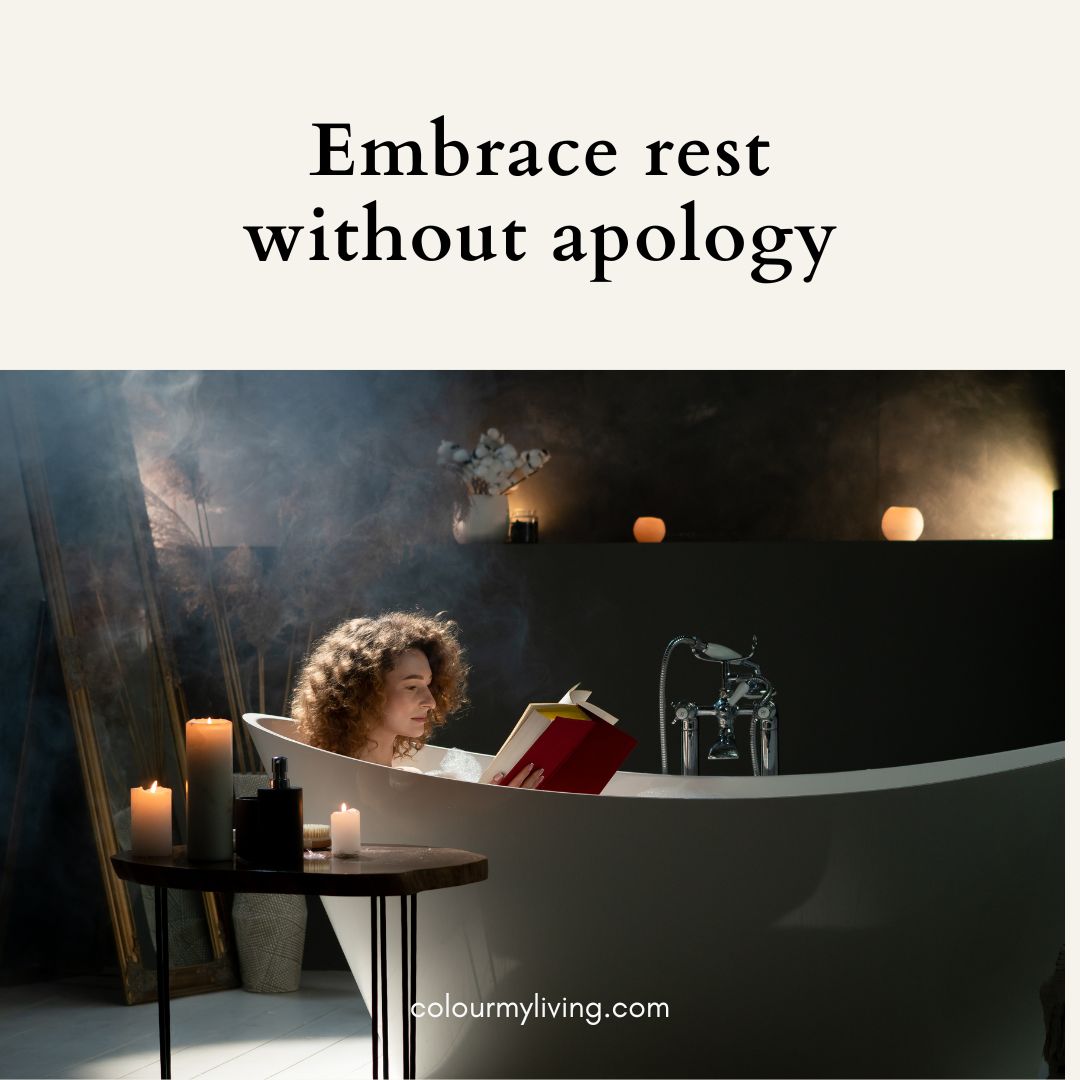
5. Surround Yourself with Supportive Voices
Your environment plays a huge role in how safe it feels to prioritise your needs. If you’re surrounded by people who glorify overwork or downplay emotional health, it becomes harder to believe you’re allowed to rest.
That’s why finding people who support, model, and celebrate self-care is essential. These people are not just your cheerleaders—they are your reminders that you are not alone in this journey.
Supportive voices can come in many forms:
- A friend who asks how you’re really doing
- A therapist or coach who helps you unlearn guilt-based patterns
- Online communities that promote mental health, mindfulness, or slow living
- Books, podcasts, and blogs that reinforce your values
By immersing yourself in a culture that respects self-care, you begin to internalise that respect for yourself.
Spending time with people who encourage and respect personal well-being helps in reducing self-care guilt. This might involve:
- Engaging with communities that value self-care.
- Seeking out mentors, friends, or role models who prioritize well-being.
- Reading or listening to content that reinforces self-love and self-respect.
The more self-care is normalized, the easier it becomes to embrace.
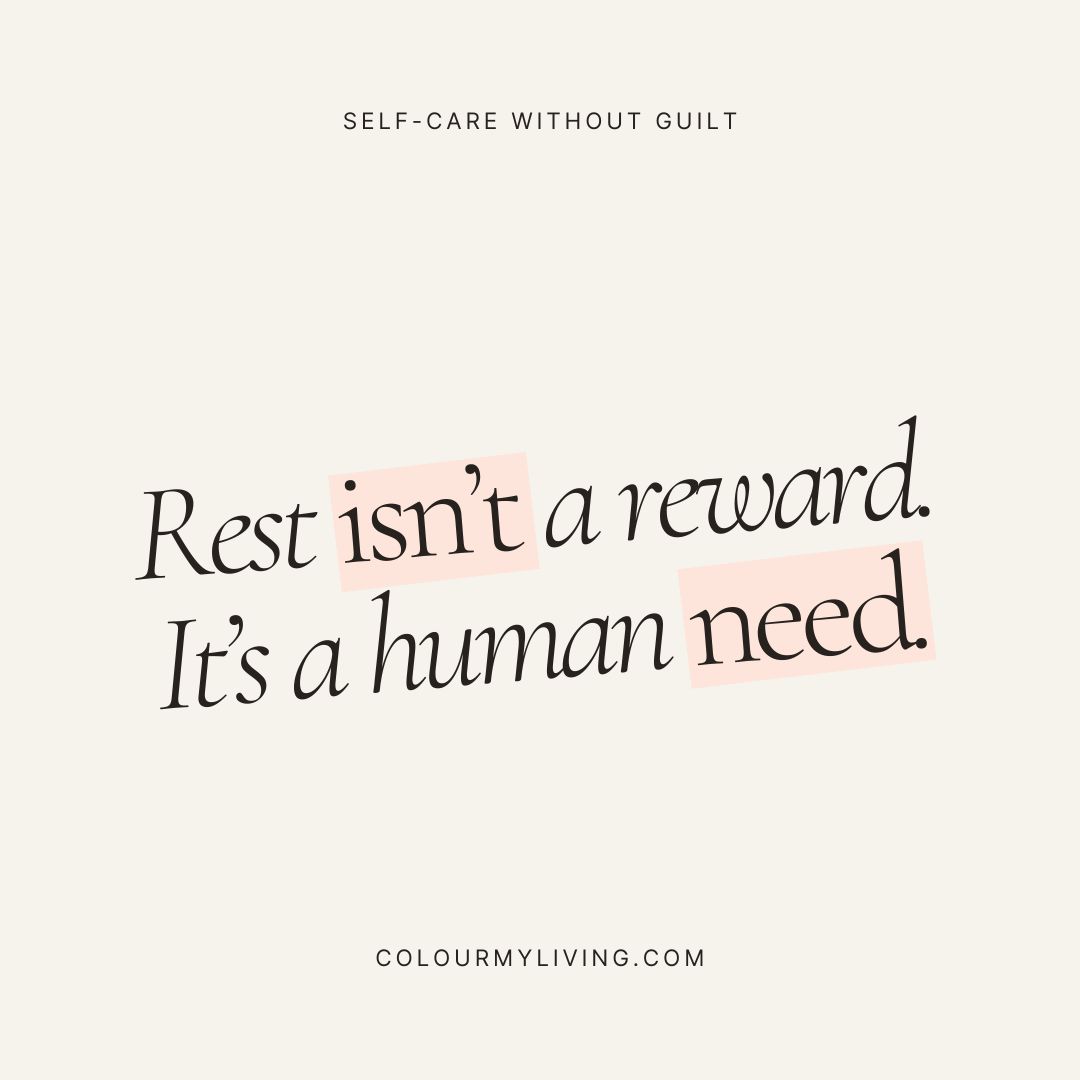
Final Thoughts: Choosing Self-Care Without Guilt
Prioritizing personal well-being is at its heart an act of self-respect. By releasing guilt and recognizing that self-care allows for greater emotional balance, energy, and fulfillment, it becomes possible to create a life that reflects personal needs and values.
Embracing self-care means letting go of outdated beliefs, setting boundaries with confidence, and recognizing that rest and personal time are essential for overall well-being. The more self-care is practiced without guilt, the more it becomes an effortless and natural part of life.
